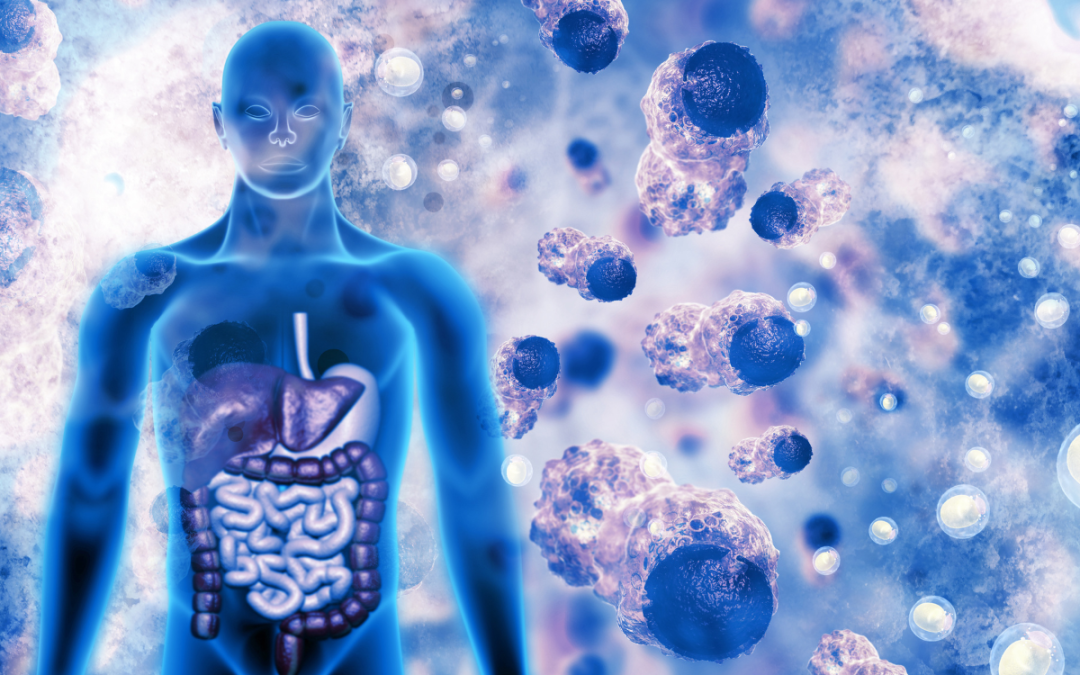Using keto for Cancer Prevention
Cancer as a metabolic disease represents a new way of looking at how cancer forms and spreads. Recent studies indicate that changes in how cells process energy, known as cellular metabolism, play a big part in cancer development. Recognising cancer as a metabolic disease opens up new possibilities for treatments that target these metabolic weaknesses. It also highlights the importance of lifestyle choices like diet and exercise in preventing and managing cancer.
A low carb diet may prevent cancer by starving cancer cells of their primary fuel source, glucose, hindering their growth. It helps stabilise insulin levels, reducing the promotion of cancer cells. By lowering inflammation, maintaining hormone balance, and supporting healthy weight, it mitigates cancer risks. Additionally, it enhances immune function, aiding in the recognition and elimination of cancerous cells. While no single dietary factor guarantees protection, a low carb diet, coupled with a balanced intake of nutrient-rich foods and regular exercise, forms a vital part of a holistic approach to reducing cancer risk and promoting overall health.
What can a ketogenic diet do?
The ketogenic diet, characterised by high fat, moderate protein, and low carbohydrates, has gained popularity not only for weight loss but also for its potential health benefits. The diet induces a metabolic state known as ketosis, where the body primarily relies on ketone bodies derived from fat for energy instead of glucose.
The link between cancer and metabolism has sparked interest in exploring the role of keto for cancer prevention. Cancer cells exhibit a heightened dependence on glucose for energy due to their rapid proliferation, a phenomenon known as the Warburg effect. By restricting carbohydrates and glucose availability through a ketogenic diet, proponents argue that one could potentially starve cancer cells and hinder their growth.
Ketone bodies possess anti-inflammatory and antioxidative properties, potentially mitigating cellular damage and reducing the risk of carcinogenesis. Furthermore, the ketogenic diet may modulate insulin levels, insulin-like growth factor 1 (IGF-1), and mTOR pathways, which are implicated in cancer development and progression.
Why aren’t doctors talking about this?
While the idea of using dietary interventions like the ketogenic diet for cancer prevention is promising, it’s important to acknowledge the current state of research and its limitations. Much of the evidence supporting the role of ketogenic diets in cancer prevention comes from preclinical studies and anecdotal reports. Clinical trials exploring the efficacy and safety of ketogenic diets in cancer prevention and treatment are still ongoing and require further validation.
Typically, studies and trials are funded by pharmaceutical companies. Trials focused solely on dietary interventions often rely on crowdfunding for financial support.
Will doing keto stop me getting cancer?
While the ketogenic diet shows promise as a potential tool for cancer prevention, more research is needed. As our understanding of cancer and metabolism continues to evolve, dietary interventions like the ketogenic diet offer new avenues for exploration.
Individuals should approach dietary changes with caution. Please consult healthcare professionals to tailor recommendations based on your unique health needs and circumstances.
Check out my other blog posts here for more Australian keto articles.
The ketogenic diet, celebrated for its low-carb approach, offers numerous health benefits. It aids in weight loss and promotes overall health as you age. If you’re considering adopting a keto lifestyle, I invite you to explore my website for detailed information about the Easy Keto program, available nationwide in Australia.


